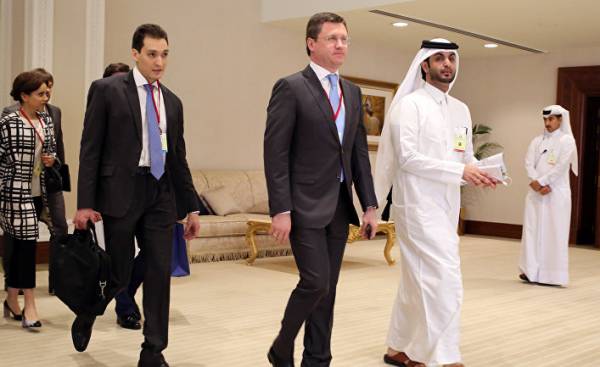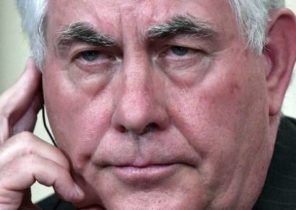
Engineers oil and gas industry has revolutionized with its technology of hydraulic fracturing, are unlikely to seriously think about geopolitics when he turned US into a leading manufacturer of hydrocarbons. But the geopolitical consequences of this revolution shocked the whole world. Destroyed all the old ideas about American interests in the middle East, and this already troubled region has turned into a veritable powder keg.
On military and diplomatic intervention of the United States in the middle East — especially the Persian Gulf — once viewed solely through the prism of American dependence on oil and the consequences of its price UPS and downs for the economy. Now the situation has changed as U.S. dependence on middle Eastern oil has declined substantially, and dangerous diplomatic flare in the Persian Gulf, such as the continued blockade of Qatar, his neighbours, not to cause panic in oil markets.
In 2006, oil imports to the USA amounted to nearly 13 million barrels per day, and approximately half of this amount was supplied by OPEC countries. In March of this year, net imports were equal to 4.2 million barrels, as the largest foreign supplier of oil to the United States were made by Canada.
It gave American foreign policy a greater degree of freedom, but also led to the fact that the United States began to move away from the middle East, despite Israeli-Palestinian peace talks, which recently launched in-law of President Donald trump Jared Kushner (Jared Kushner), and which — not bright prospects. What is happening in the middle East is less concerned about US than before, when they were dependent on middle Eastern oil, which gave fuel for its economy. Of course, Islamic terrorism continues to pose a large and growing threat to America, but it is hardly as sharp and severe as in Europe, where the population feels it every day. Although this threat has led to the blockade of Qatar.
The United States began to leave the Middle East under former President Barack Obama, who withdrew American troops from Iraq — even a few thousand, and went back to fight with the “Islamic state” (banned in Russia as a terrorist organization — approx. transl.) and refused direct intervention in the Syrian civil war. As the resulting vacuum was filled by Russia, which supported a bloody ruler Bashar al-Assad, the West can act in Syria only on the second and third roles because they do not want to risk a military confrontation with Vladimir Putin. The U.S. decision to shoot down this week, Syrian combat aircraft is most likely an isolated case, a sort of warning shot to the side of the Assad regime, but not the prelude to a large-scale proxy war between Russia and America.
To resolve the Syrian conflict can only Putin, but the Russian President is in no hurry to play the role of peacemaker. It’s in his interest to prevent the construction of pipelines through the territory of Syria. Gas can go from the Persian Gulf to Europe, which significantly reduced its dependence on Russia. Needless to say, that while this country destroyed by war and terrorism, no new pipelines on its territory may not be considered.
Russia may also contribute to the resolution of the situation with Qatar, against which this month imposed a blockade of Saudi Arabia, United Arab Emirates, Egypt and Bahrain. Russian hackers have even accused that they have placed on the state news website of Qatar “fake news” of the Pro-Iranian content that pushed Riyadh and its allies to embargo. But the Saudis don’t need any excuse to punish Qatar for its dangerous flirtation with Iran, for harboring Hamas leaders and “Muslim brotherhood” (banned in Russia as a terrorist organization — approx.ed.) and for provocative stories of the Qatari channel Al Jazeera.
Tensions between Arab countries leads to the emergence of Russia as an influential player in the middle East. She entered into an Alliance with Sunni Saudi Arabia in an attempt to support oil prices (so far unsuccessfully), but also with Shia Iran to help Assad. In partnership with Qatar and Iran develops it is common for the two countries ‘ Maritime gas deposits, which promise large production volumes. A Qatari national welfare Fund have entered into an agreement with Putin on the acquisition of shares of the state oil company “Rosneft”.
While the ignorant trump on Twitter expressed support for Saudi Arabia in its confrontation with Qatar (it seems, however, he puts on a par with the US interests and their own business interests in the region), his assistant for national security urgently trying to resolve the conflict that threatens the future of the cooperation Council of the Gulf countries (which the US supports), and even important American airbase in Qatar.
It seems that Putin is ahead of them all in a few steps, carefully thinking through your moves.







